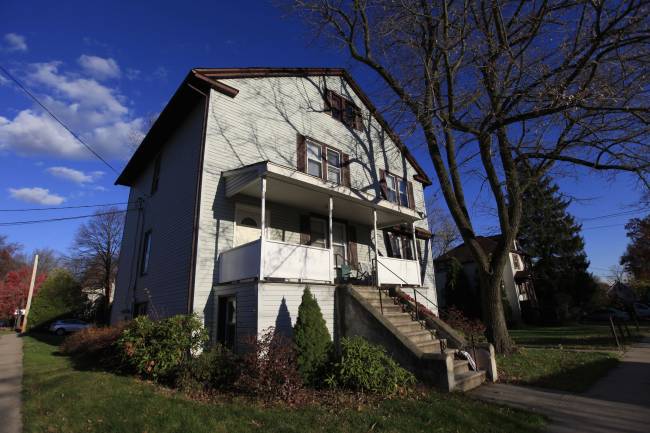
Morris County homeowner, facing foreclosure, gets a free house instead
Richard Newman

A Morris County homeowner who has been in default on his $520,000 mortgage loan since 2007 has won an unusual victory in bankruptcy court in Newark: a free house.
Homeowner Gordon A. Washington of Madison challenged the right of the creditors Specialized Loan Servicing LLC and Bank of New York Mellon to collect the debt, and he won. Big.
In a Nov. 5 decision, Judge Michael B. Kaplan agreed that the creditors failed to file a viable foreclosure complaint against Washington within a six-year statute of limitations, starting from when Washington stopped making payments, which was in mid-2007, the court document said.
“The mortgage lien is void … and the debtor retains the property, free of any claim of the defendants,” wrote Kaplan, who expressed reluctance in nullifying the debt. “The court will proceed to gargle in an effort to remove the lingering bad taste.”
The legal action may be a first for New Jersey, which leads the nation by number of mortgages in foreclosure, according to data provided by the Mortgage Bankers Association on Friday.
“This is the first case I know of that held that a statute of limitations would apply to the correction of a mortgage loan,” said Montclair lawyer Margaret Jurow, who represents New Jersey homeowners facing foreclosure. Generally, the best a borrower can hope for when fighting the validity of a mortgage loan is a modification of the loan to get a lower down payment that allows the borrower to stay in their home, she said.
“It’s an extremely unusual situation,” said national foreclosure expert Max Gardner, who trains bankruptcy lawyers in Shelby, N.C. Gardner has heard of people getting mortgage debts voided in Maine and Florida because a lender failed to meet legal requirements, but not in New Jersey.
“I think [the decision] kind of speaks for itself,” said Washington’s Englewood lawyer Walter Nealy, who said his client did not want to comment on his bankruptcy proceedings, which are ongoing.
It could not be learned Friday if Specialized Loan Servicing LLC and The Bank of New York Mellon intend to appeal the court’s decision to void the mortgage. An inadequately documented foreclosure complaint was filed by the creditors and that was dismissed last year for lack of prosecution. Their Elmsford, N.Y., law firm did not respond to a request for comment.
Washington bought the 4,008-square-foot house on Walnut Street in Madison in February 2007 for $650,000, with $130,000 down and a 30-year adjustable-rate mortgage for $520,000. He made only a few of the $4,165-a-month payments before defaulting, and has remained in the house.
According to court documents, Washington lived on the top floor while converting the first floor and basement level into separate apartments to rent out. During renovations, the first- and second-floor apartments suffered water damage and became uninhabitable. The loan was assigned by America’s Wholesale Lender, the original lender, to Bank of New York in a transaction recorded in September 2008.
Washington, who is in his mid-50s, filed for bankruptcy protection from creditors on March 12 of this year.
Although this stalled foreclosure attempt is an extreme example, foreclosure cases tend to take a long time in New Jersey, two years or more, in part because the state has more legal protections for consumers than most states and courts and some lenders are having trouble handling the volume.
The six-year statute of limitations was added to New Jersey’s 1995 Fair Foreclosure Act in 2009, and was applied retroactively in this case by Kaplan.
In New Jersey, which has been slow to recover from the 2007-09 recession, more than one in six mortgage loans were either in foreclosure or the borrowers were late on payments in the third quarter, the Washington-based Mortgage Bankers Association said.
Kaplan expressed distaste for his own ruling in his written decision.
“No one gets a free house,” he wrote. “This court and others have uttered that admonition since the early days of the mortgage crisis, where homeowners have sought relief under a myriad of state and federal consumer protection statutes and the bankruptcy code.
“Yet, with a proper measure of disquiet and chagrin, the court must now retreat from this position, as [the homeowner] has presented a convincing argument for entitlement to such relief.”
Washington may not keep the house for long, though. His tentative bankruptcy reorganization plan includes the sale of the house to pay creditors.
Email: newman@northjersey.com
